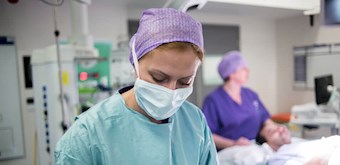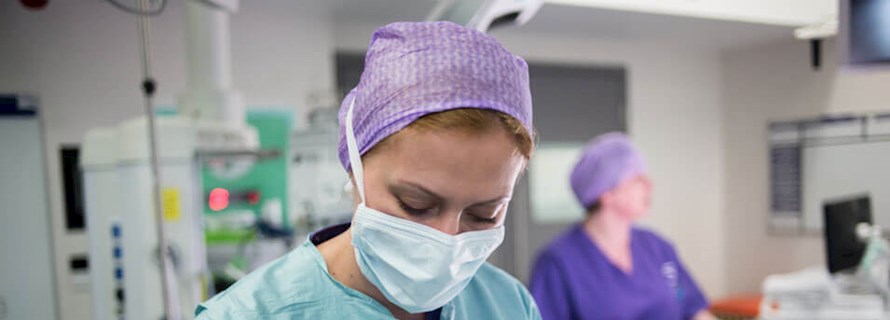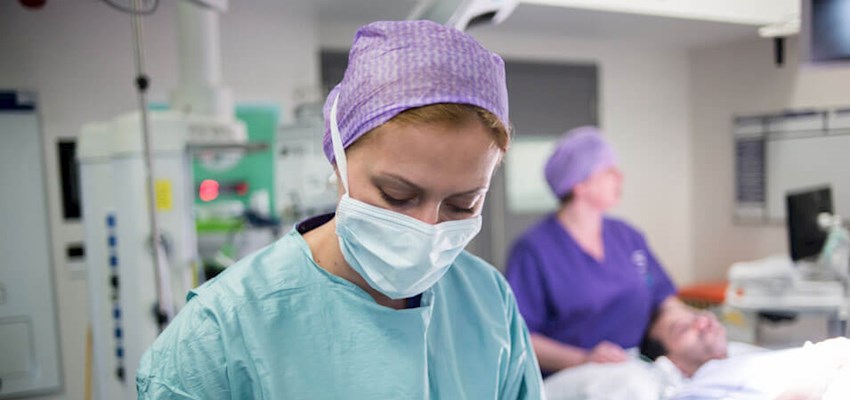Varicose veins
Varicose veins are swollen, bulging veins that normally occur in the legs and feet
About
Varicose veins are enlarged, swollen veins in the legs. It is common, affecting 30 per cent of the adult population. It is caused by weakness in the valves in the veins which prevent blood from flowing back to your feet. It can be treated as a day case and most people return to normal activity within two days.
Need to know
-
Symptoms of varicose veins icon plus
Varicose veins cause a variety of symptoms, all of which can be helped by treatment:
- many people do not like the look of the veins and that can inhibit them from wearing certain clothes or taking part in some activities
- varicose veins can cause aching of the calves, especially after long periods of standing. They can cause itching of the skin and restless legs
- varicose veins can cause swelling of the ankle and lower leg
- in some people the symptoms can be more severe and include eczema on the affected leg, hardening of the skin (liposclerosis), phlebitis, bleeding and ulceration.
-
Diagnosis icon plus
Diagnosis of varicose veins is usually straight forward but it is often recommended a quick, painless, ultrasound scan is performed to assess the deep and more superficial veins of the legs. This is essential if treatment is to take place. In rare cases, patients require a CT or MRI scan. Your HCA consultant will discuss these tests with you:- an ultrasound scan to check blood flow and whether the valves in your veins are working correctly
- a duplex ultrasound scan to identify abnormalities in vein structure and assess the deep veins for signs of DVT.
-
Potential treatment options icon plus
Your HCA consultant can discuss, with you, the pros and cons of treatment of your varicose veins. After a duplex scan they can suggest the most appropriate techniques to help your symptoms.
Your HCA consultant will use the latest proven techniques which are in line with national guidance.
Treatments include key hole techniques such as endothermal ablation (sometimes called Laser or radiofrequency ablation), avulsions and foam sclerotherapy. All of these treatments can be done under a general or local anaesthetic. There are other techniques including glue but they are not yet proven to be as effective as other established methods.
Traditional vein stripping is rarely used as the better, keyhole techniques allow people to return to normal activity quickly
Our consultants
We're proud to work with leading experts across a range of medical fields, whose skills are matched by their integrity and compassion.




Our facilities
From complex surgery to straightforward procedures, we provide exceptional care across our network of hospitals, outpatient centres and specialist clinics.
Book an appointment
Our team can help with any enquiries or you can make an appointment with one of our experienced consultants.
Call us today
020 7079 4344
This content is intended for general information only and does not replace the need for personal advice from a qualified health professional.